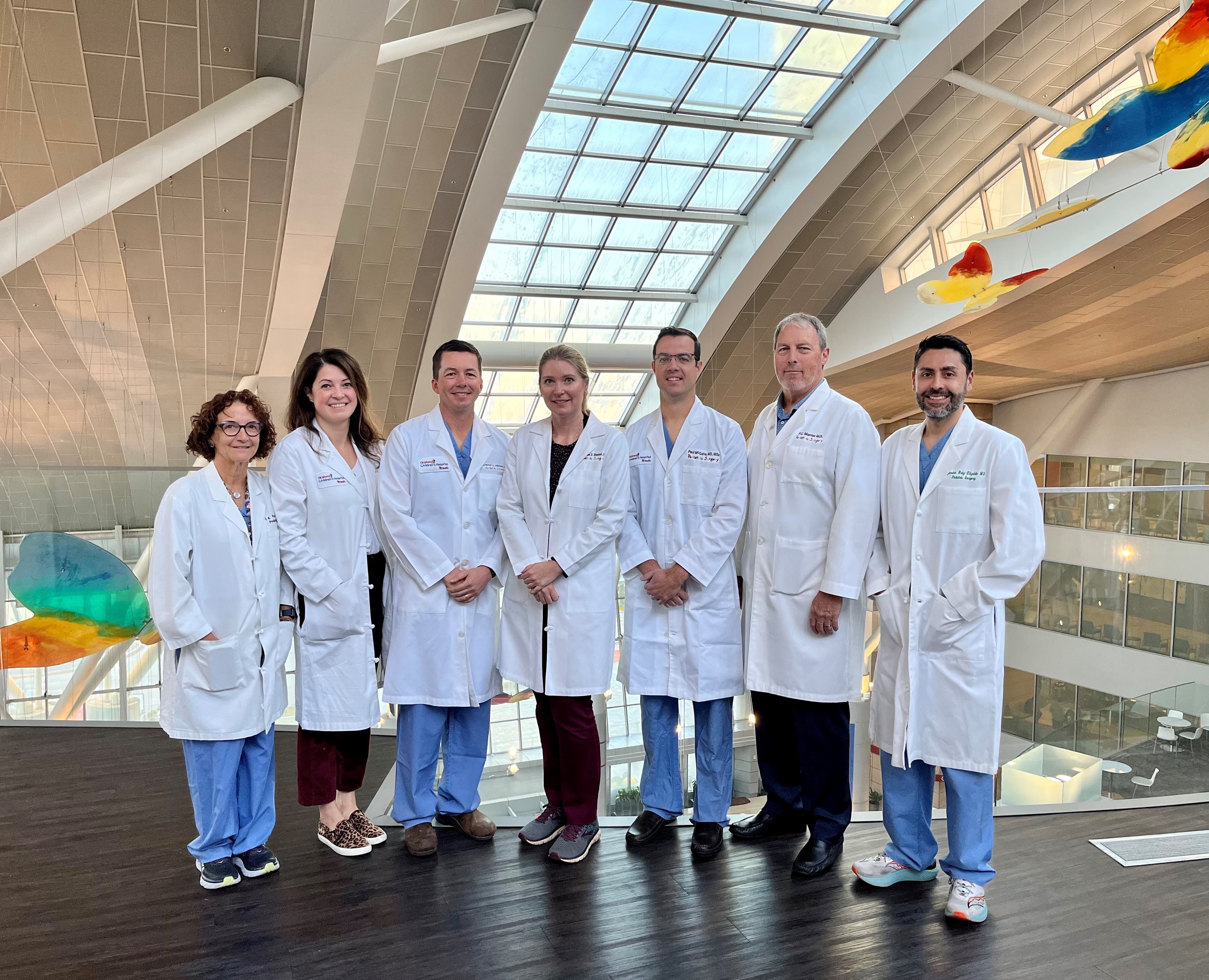Year one: Pediatric surgery training involves a closely supervised two-year period of education, gradually giving trainees more responsibility and independence. The initial six months of training will expose the resident to clinical care of all common and tertiary pediatric surgery problems. The second six months is focused on directing the trainee to become more independent in his/her patient care management; building a broad base of knowledge in both pediatric physiology and pathobiology and incorporating a collaborative clinical research project with the faculty. Constant communication between the first-year trainee, the attendings and the senior fellow is expected.
Year two: During the second year of training, the trainee is expected to perform in a more independent fashion, making important decisions regarding preoperative, intraoperative and postoperative patient management. The fellow is given additional teaching and administrative responsibilities, as well as additional independent operating room experience as his/her technical skills are developed through one-on-one teaching. Progression of responsibility toward independent performance, especially during the last six months of clinical training, is strongly promoted by faculty. Pediatric surgery attendings continually monitor and provide appropriate feedback to the pediatric surgery fellow throughout his/her clinical training both in and out of the operating room.
Continuity of Care
The pediatric surgery fellows are responsible for the direct management of all patients in pediatric surgery. The fellows are assigned to coordinate all patient care activities, including inpatient care, operating room case assignments, emergency room consultation, daily rounds, inpatient consultations and attendance at conferences. The caseload provides a balanced mix of ambulatory surgical, neonatal and complex operative cases, giving trainees a well-rounded learning experience.
Each morning and afternoon, the fellows lead rounds with surgical residents and medical students, followed by service planning for the day and a review of patient status with the on-call attending surgeon. Operating room responsibilities for the day are assigned by the fellows. All patient management plans are reviewed with the patient’s attending surgeon prior to implementation, and all inpatient consults are discussed with the on-call attending. The Pediatric Surgery Service is responsible for all ECMO management, which is coordinated by the fellows and the surgical faculty.
The Pediatric Surgery Service has outpatient office hours each weekday, during which the fellows may evaluate patients and discuss plans with the attending surgeons. This experience allows the resident to follow long-term patients, gaining an important perspective on their growth, development and care managements. As trainees progress during fellowship, the attendings encourage more independent management of patients.
Department of Pediatric Surgery Faculty
